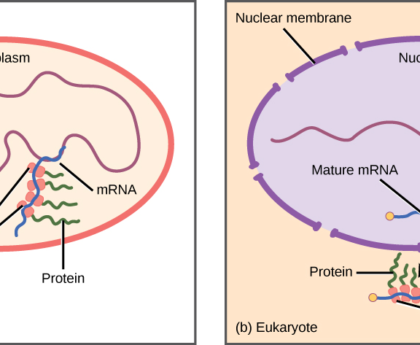As the festive season approaches, a growing number of calls are being made for the Department for Work and Pensions (DWP) to increase the Christmas bonus provided to benefit claimants. With the cost of living rising and many people struggling financially, there is increasing concern about the impact of the holiday season on those already living on a limited income. This article explores the current state of the Christmas bonus, the reasons behind the calls for an increase, and the broader context of support for low-income households in the UK during the holidays.
What is the Christmas Bonus?
The Current Payment
The Christmas bonus, officially known as the “Christmas Bonus Payment,” is a one-off annual payment provided by the DWP to certain people who are receiving specific benefits. This bonus has been in place for many years, but its value has remained relatively unchanged for quite some time. Currently, the bonus stands at £10, which is a modest sum, considering the high costs associated with the holiday season. The payment is generally made in early December and is given to people receiving qualifying benefits such as Pension Credit, Employment Support Allowance (ESA), Income Support, and Universal Credit.
Who is Eligible for the Bonus?
The Christmas bonus is available to individuals who meet specific eligibility criteria, primarily relating to their benefit status. Those who are receiving a qualifying benefit as of the first week of December are typically eligible for the bonus, including:
Pension Credit claimants
ESA claimants (if they meet certain criteria)
Income Support claimants
Universal Credit recipients (subject to conditions)
However, the bonus is not available to all benefit claimants, with some individuals missing out, particularly those who are in work but receiving benefits through Universal Credit.

The Growing Call for an Increase
Why Do People Want an Increase?
The growing call to increase the Christmas bonus comes from several factors, with one of the most significant being the rising cost of living. As inflation continues to rise, many households are finding it harder to make ends meet, especially during the festive period when additional expenses such as food, heating, and gifts are often higher than usual. While the £10 bonus is seen by some as a symbolic gesture, many argue that it is insufficient to help those who are already struggling financially. The bonus is seen as a way to ease some of the pressures people face during the holidays, but many feel that the current amount is inadequate for the challenges faced by low-income households.
Public Opinion and Advocacy
The call for an increase in the Christmas bonus has been amplified by advocacy groups and charities who work with low-income families. They argue that the bonus should be significantly higher to reflect the true cost of living during the holiday season. Additionally, some believe that the bonus should be expanded to include more people who are struggling but currently miss out on the payment, such as those in temporary work or on low wages but still receiving Universal Credit. Public opinion on the matter has been mixed, but there is growing support for an increase, particularly as more people are affected by the rising cost of living.
What Are the Possible Alternatives?
Universal Credit and Other Benefits
One potential alternative to increasing the Christmas bonus is an increase in Universal Credit or other benefits. Some argue that raising the base rates of Universal Credit offers a more sustainable solution. This approach would provide consistent support year-round. It would also better address the ongoing struggles faced by those on low incomes. Increasing Universal Credit could also address the wider issue of poverty, which is not confined to the holiday season alone.
Targeted Support for the Most Vulnerable
Another option is to target support more effectively to the most vulnerable people. Some people argue that the Christmas bonus should be means-tested. This way, it would go to those who need it most. Such a measure could ensure the payment helps those in severe financial hardship. It would prevent giving it to people who might not need it as much.
What Could Be the Impact of an Increase?
Improved Well-being for Low-Income Households
An increase in the Christmas bonus could have a significant positive impact on the well-being of low-income households. The extra money could help families buy food, pay heating bills, or purchase gifts for their children. These small actions can make a big difference during the holiday season. By increasing the bonus, the government can ease the financial strain that many families face. This could make the festive period more manageable.
Positive Economic Impact
There is also the potential for a positive economic impact. Increased spending during the holiday season can stimulate local economies, especially in communities dependent on benefits. By providing people with more money, the government can encourage more economic activity. This, in turn, boosts the retail sector and other industries. As a result, the economy could see growth.
Final Thoughts
The growing call for an increase in the Christmas bonus highlights the need for more support for low-income households during the festive season. The current £10 bonus may have been enough in the past, but it no longer meets the needs of those facing rising living costs. Therefore, an increase is urgently needed to help people manage expenses. As a result, many are calling for a more substantial bonus to provide greater financial relief. Many advocates now call for a significant increase in the bonus or broader changes to the benefits system. This would ensure that the most vulnerable receive the support they need, both during the holidays and beyond.
In Summary
The Christmas bonus, while helpful, is no longer adequate in the face of rising living costs. Increasing the bonus or offering more targeted support to those in need could ease the financial pressures faced by low-income families during the festive season. As the call for change grows louder, the government’s response will be crucial. It remains to be seen if any changes will be made to ensure better support for people in the future.
FAQs
What is the current value of the Christmas bonus?
The Christmas bonus currently stands at £10, which is paid to those who meet the eligibility criteria, including recipients of certain benefits like Pension Credit and Universal Credit.
Who is eligible for the Christmas bonus?
To be eligible for the Christmas bonus, individuals must be receiving certain benefits, such as Pension Credit, Income Support, ESA, or Universal Credit, as of the first week of December.
Why are people calling for an increase in the Christmas bonus?
People are calling for an increase in the Christmas bonus due to the rising cost of living. The current £10 payment is seen as insufficient to help those struggling financially during the holiday season.
Could increasing Universal Credit be a better solution?
Some argue that increasing Universal Credit or other benefits could provide a more sustainable, long-term solution for low-income households, rather than relying on a one-off payment like the Christmas bonus.
What could be the impact of increasing the Christmas bonus?
Increasing the Christmas bonus can improve low-income households’ well-being. It helps cover essential expenses like food and heating. This boosts income and reduces holiday stress. It improves their quality of life during the festive season. It could also have a positive economic impact by boosting spending in local economies.
To read more, Click Here.




